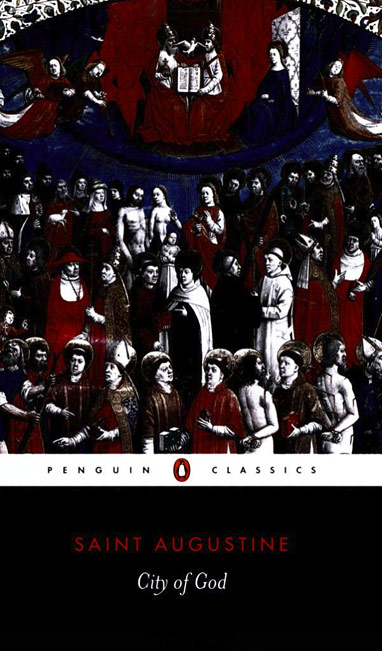The Baha’i faith, a relatively young religious movement that emerged in the 19th century in Persia, places significant emphasis on the spiritual and communal journey toward establishing a harmonious global society. At the core of the Baha’i teachings lies the metaphorical concept of the “City of God,” an ideal state characterized by unity, justice, and peace. This essay elucidates the philosophical underpinnings of this notion, exploring its relevance and appeal within the framework of Baha’i principles.
To commence, it is imperative to comprehend the initial appeal of the City of God metaphor. The imagery itself evokes a sense of hope and aspiration. In an increasingly fragmented world, where socio-political discord often dominates headlines, the idea of a utopian city—a sanctuary of tranquility—becomes particularly resonant. This metaphor encapsulates the aspirations of many: the yearning for a collective existence devoid of strife and inequity.
The Baha’i teachings assert that the journey to the City of God begins with the individual’s internal transformation. In this regard, personal spiritual development is paramount. The Baha’i writings elucidate that the heart must first undergo a metamorphosis. Self-reflection, prayer, and adherence to moral principles create a fertile ground for the blossoming of virtues such as love, kindness, and compassion. These virtues, in turn, are essential for fostering compatibility among individuals in the broader community.
Moreover, understanding the significance of unity is essential to the Baha’i vision. Unity, as expounded in Baha’i scripture, transcends mere tolerance; it embodies the recognition of the essential oneness of humanity. This tenet challenges deeply ingrained prejudices and sectarian divisions. The metaphor of the City of God serves as a call to transcend these artificial barriers. As individuals commit to the principles of justice and equity, they collectively draw closer to the realization of this ideal city.
Another pivotal aspect of Baha’i teachings is the role of education in manifesting the City of God. The Baha’i writings underscore the transformative potential of knowledge. Education serves not merely as a tool for personal advancement but as a means of collective empowerment. When individuals are equipped with knowledge—spiritual and practical—they are better positioned to contribute meaningfully to society. The Baha’is advocate for a holistic educational paradigm that nurtures the intellectual, moral, and spiritual faculties of every individual, thereby promoting the flourishing of their communities.
Furthermore, the Baha’i faith offers a distinct perspective on societal progress, viewing it as a systematic process aligned with divine guidance. This perspective is invigoratingly optimistic. Baha’is believe that humanity is on a trajectory toward unprecedented unity and cooperation. The City of God, viewed through this lens, is not merely a static utopia but an evolving reality shaped by the collective efforts of individuals committed to social transformation. Each act of kindness and every endeavor for justice contributes to the gradual manifestation of this higher state.
In contemplating the role of altruism in Baha’i teachings, one recognizes that to aspire toward the City of God is, simultaneously, to embrace selflessness. Baha’is actively engage in service to others, which is intrinsic to their spiritual practice. This selfless service enriches both the giver and the receiver. By fostering environments of mutual support, Baha’is cultivate a sense of belonging, thereby laying the groundwork for the City of God. Such communal bonds transcend individual aspirations, nurturing a collective identity rooted in shared values and moral principles.
Another compelling aspect of the journey towards the City of God is the Baha’i emphasis on consultation as a method of decision-making. This proses underscores inclusivity and collaborative engagement. Baha’is are encouraged to engage in respectful discourse, valuing diverse viewpoints. This approach not only cultivates deeper understanding but also serves to mitigate conflict. The practice of consultation promotes a culture of transparency and collective wisdom, which is fundamental to fostering the unity and cooperation envisaged in the City of God.
Moreover, the teachings highlight the importance of global citizenship. The Baha’i vision advocates for a world where national boundaries do not hinder the pursuit of peace and cooperation. Such a global perspective encourages individuals to recognize their intrinsic connection to humanity as a whole. The City of God is envisioned as a microcosm of this interconnectedness—an exemplar of a society that operates beyond parochial interests and embraces a broader, more inclusive framework.
As we delve into the deeper reasons behind the fascination with the City of God, it becomes evident that this concept offers a profound promise. It inspires individuals to transcend their immediate realities and connect with a higher purpose. The pursuit of the City of God provides a narrative that speaks to the heart of humanity’s aspirations—an enduring quest for justice, peace, and unity.
In conclusion, the journey to the City of God, as articulated through Baha’i teachings, is rich with implications for personal and societal advancement. It calls for a transformative engagement with the self, an embrace of communal responsibilities, and a commitment to education and consultation. The allure of this ideal city transcends mere intellectual fascination; it invites individuals to actively partake in the co-creation of a more just and harmonious world. As we strive toward this aspiration, we not only enrich our own spiritual journeys but contribute to the greater tapestry of human unity.
